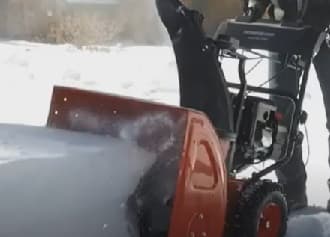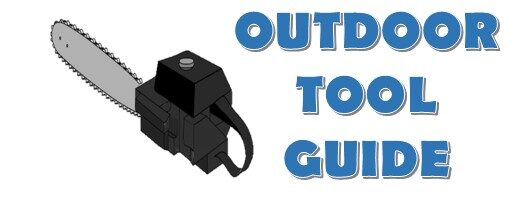As an Amazon Associate, this site earns commissions from qualifying purchases. For more information click here.
Ah, winter. The season of snowball fights, cozy blankets, and, of course, the dreaded task of shoveling snow. But fear not, my frosty friends, for the modern world has blessed us with the wonders of snow blowers. Now, if you’re like me and live in a winter wonderland, you’ve probably contemplated whether to go electric or gas-powered when it comes to snow blowers. Let’s break it down, shall we?
Key Takeaways:
- Electric snow blowers are eco-friendly and low maintenance, but cord constraints and power limitations may be drawbacks.
- Gas snow blowers offer unrivaled power and mobility, but they are noisy, require more maintenance, and have a heavier environmental impact.
- The choice between electric and gas snow blowers depends on individual needs, with factors like driveway size, snowfall frequency, and environmental concerns influencing the decision.
Power Play: Electric Snow Blowers
First up, we have the electric snow blower, the sleek and silent hero of snow removal.
Pros:
- Eco-Friendly: One of the big pluses of electric snow blowers is their eco-friendliness. They don’t emit any fumes or greenhouse gases, making them a greener choice for your winter cleanup.
- Low Maintenance: Say goodbye to oil changes and messy fuel spills. Electric snow blowers require minimal maintenance compared to their gas-guzzling counterparts. Just plug in and play.
- Lightweight and Compact: Electric snow blowers are often lighter and more compact than gas models, making them easier to maneuver and store, especially in smaller residential spaces.
- User-Friendly: Electric snow blowers are generally easier to start than gas models. No need to yank on a recoil starter in the freezing cold – just push a button or pull a trigger, and you’re good to go.
Cons:
- Cord Constraints: The biggest drawback of electric snow blowers is the cord. You’re limited by the length of your extension cord, which can be a hassle to manage, especially in larger yards or driveways.
- Power Predicament: While electric snow blowers are perfect for light to moderate snowfall, they may struggle with heavy, wet snow or larger drifts. You might find yourself making multiple passes to clear the same area.
- Battery Blues: If you opt for a cordless electric snow blower, you’ll need to contend with battery life. Depending on the model, battery runtime can vary, and you may find yourself waiting for batteries to recharge mid-task.
- Limited Mobility: Corded electric snow blowers are tethered to a power outlet, limiting your mobility and range. You’ll need to carefully plan your path to ensure you can reach all areas that need clearing.
Related. Are Snow Blower Pins Universal?
Gas-Powered Grit: Gas Snow Blowers
Next on the chopping block, we have the gas-powered snow blower, the burly beast of winter warfare.
Pros:
- Unrivaled Power: When it comes to sheer snow-clearing prowess, gas snow blowers take the cake. They can tackle heavy snowfall and compacted drifts with ease, making them ideal for larger driveways or commercial use.
- No Cord, No Limits: With a gas snow blower, you’re free from the shackles of extension cords. You can roam far and wide, conquering snowdrifts without worrying about cord length or power outlets.
- Quick Refueling: Running out of juice? No problem! Just top up the gas tank, and you’re good to go. Gas snow blowers offer the convenience of quick refueling, allowing you to get back to your snow-clearing duties in no time.
- Heavy-Duty Performance: Gas snow blowers are built to handle the toughest winter conditions. They can chew through thick, icy snow and tackle large drifts without breaking a sweat.
Cons:
- Noisy Neighbor: Brace yourself for the roar of the engine. Gas snow blowers tend to be louder than their electric counterparts, which might not sit well with early morning risers or noise-sensitive neighbors.
- Maintenance Mayhem: Gas-powered engines require more maintenance than electric motors. You’ll need to change the oil, replace spark plugs, and keep an eye on fuel levels and carburetor cleanliness to ensure smooth operation.
- Environmental Impact: Let’s not forget the environmental cost. Gas snow blowers emit exhaust fumes and contribute to air pollution, which may not align with your eco-conscious values.
- Heavier and Bulkier: Gas snow blowers are often heavier and bulkier than electric models, making them more challenging to maneuver and store, especially for users with limited strength or space.

What to Look for in Snow Blowers
If you’re gearing up to conquer winter’s icy grip with a snow blower, you’re in the right place. Whether you’re eyeing an electric or gas-powered model, here’s what you need to keep in mind:
Electric Snow Blowers
- Power and Clearing Capacity: Check the motor power and clearing width to ensure it can handle the snow load in your area and the size of your driveway or walkway. Trust me; you don’t want to be stuck with a wimpy blower when the snow starts piling up.
- Cord Length or Battery Life: If you’re going corded, make sure the cord length is long enough to reach all areas needing clearing. And if you’re eyeing a cordless option, check the battery life to ensure it matches your typical snow-clearing duration. You don’t want to run out of juice mid-task.
- Ease of Use and Maneuverability: Look for features like adjustable handles and ergonomic grips to ensure comfortable operation, especially in cold and slippery conditions. And don’t forget about maneuverability – you’ll want a blower that turns on a dime to tackle tight spots.
- Durability and Build Quality: Winter can be rough, so opt for a snow blower with sturdy construction and durable materials that can withstand the elements. Check reviews for insights into durability and overall build quality – you don’t want your blower falling apart after a few uses.
- Maintenance Requirements: Nobody likes spending hours tinkering with their snow blower. Look for models with minimal maintenance requirements, such as easy-to-clean augers and rust-resistant components, to save yourself time and hassle in the long run.
Gas-Powered Snow Blowers:
- Unleash the Power: Gas snow blowers are beasts when it comes to clearing snow, but not all engines are created equal. Check the engine power and clearing width to ensure it can handle whatever winter throws your way. You’ll want that extra oomph to tackle heavy snowfall and compacted drifts.
- Mobility and Convenience: Say goodbye to cords and hello to freedom! With a gas snow blower, you’re not tethered to an outlet, giving you the freedom to roam far and wide. Look for models with easy-start features and adjustable speed settings for maximum convenience.
- Built Tough: Winter is no joke, and neither should your snow blower be. I would go for a model with sturdy construction and heavy-duty materials that can stand up to harsh winter conditions. Trust me; you’ll thank yourself when you’re plowing through knee-deep snow.
- Maintenance Matters: Gas engines require a bit more TLC than their electric counterparts. Keep an eye on oil levels, replace spark plugs as needed, and perform regular maintenance to keep your blower running smoothly season after season.
- Safety First: Last but not least, prioritize safety features. Look for a blower with a power switch that has a lockout mechanism, a discharge chute control, and clear instructions for safe operation. Your fingers will thank you.
Whether you’re team electric or team gas, choosing the right snow blower for your home is essential for surviving winter with your sanity intact. So, arm yourself with these tips, and let’s show Old Man Winter who’s boss!
So, Which One Wins the Snow Showdown?
In the battle of electric vs. gas snow blowers, there’s no clear winner. It all comes down to your specific needs and preferences.
If you’re eco-minded, have a smaller driveway, and don’t mind wrangling with a cord, an electric snow blower might be your snow-busting soulmate.
On the other hand, if you have a larger property, heavy snowfall is a regular occurrence, and you crave the raw power of a gas engine, then a gas snow blower might be your icy ally.
Ultimately, whether you go electric or gas, one thing’s for sure: with a snow blower by your side, winter’s icy grip doesn’t stand a chance. So, rev up those engines or plug in those cords, and let’s show Old Man Winter who’s boss.

I love the outdoors and all the tools for maintaining gardens, yards and lawns. The only thing I am more passionate about is sharing what I know about garden and outdoor equipment.


